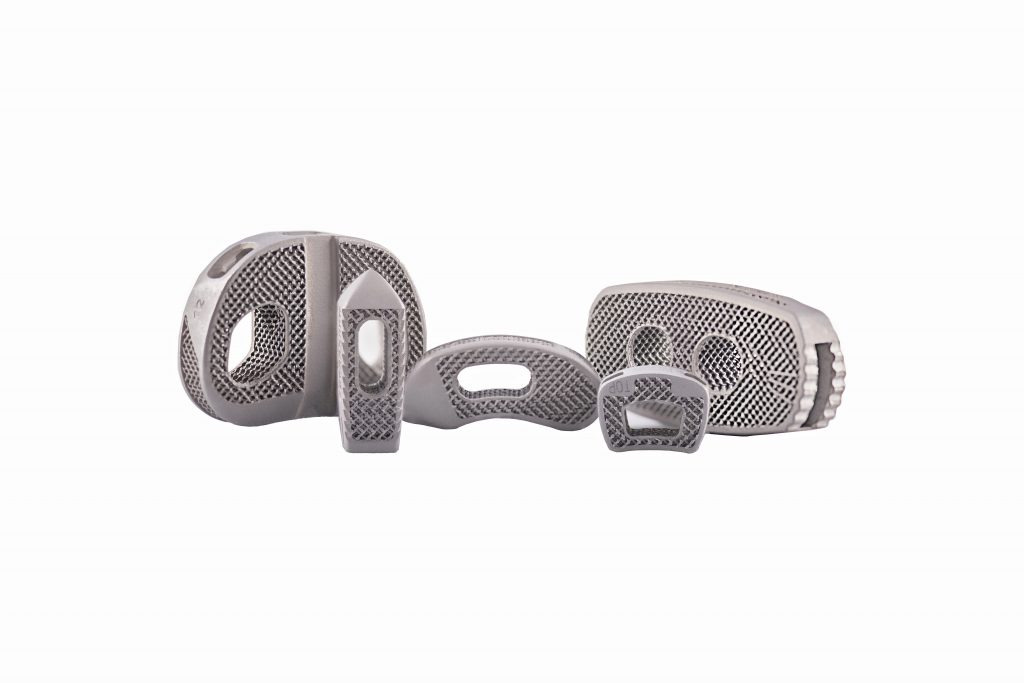DePuy Synthes, a part of the Johnson & Johnson Medical Devices group, has launched a new 3D printed titanium spine implant line. Named the CONDUIT Interbody Platform, the devices are the first release to use trademark technology from Germany’s Emerging Implant Technologies (EIT) since it was acquired by Johnson & Johnson Medical GmbH in 2018.
Nadav Tomer, Worldwide President of Spine at DePuy Synthes, comments, “Our goal as a spine business is to focus on the areas with the most potential to solve unmet clinical needs, and we are excited to add advanced materials to our interbody portfolio as another option for surgeons,”
“The launch of the CONDUIT portfolio, together with our comprehensive interbody implant offerings for degenerative disc disease, helps us deliver life-enhancing spine solutions that advance the standard of care for patients everywhere.”
EIT Cellular Titanium
CONDUIT is a new family of implants made using EIT Cellular Titanium, a material with an elasticity modulus comparable to cancellous tissue found at the core of human bones. Coming in a variety of shapes and sizes (depending partly on the direction from which they are implanted), each one of the CONDUIT implants is designed with a latticed center. This structure makes the implants 80% porous, compared to the atypical 50 – 90% porosity of natural cancellous bone. The organized and porous structure of the implants promotes the grafting of natural bone as the body heals.

CONDUIT implants are used to treat collapsed discs to occur in degenerative spine disease. Dr. Wilson Z. Ray, a Neurological Surgeon and consultant to DePuy Synthes Spine has had direct experience with the devices, for both the lumbar (lower back) and cervical (neck) regions of the spine. One of the advantages noted by Dr. Ray are the implants’ visibility during post-operation monitoring. “The implant allows for superior visualization,” he comments, “virtually no scatter on CT scan and early fusion assessment as compared to other titanium interbody devices.”
DePuy Synthes and additive manufacturing
DePuy Synthes is committed to supporting the development of additive manufacturing in medical. Following the acquisition of EIT, the company invested €36 million through its Ireland Innovation Centre to advance material science in 3D printing. The company also owns 3D printing technology from Michigan-based Tissue Regeneration Systems and has a longstanding surgical guide production partnership with Materialise.
For 3D printed spinal implants in particular, the company is in competition with the likes of American medical device manufacturer Stryker, that currently claims to have “the largest portfolio of 3D printed cages on the market.”
For more 3D medical updates subscribe to the 3D Printing Industry newsletter, follow us on Twitter and like us on Facebook. Seeking jobs in engineering? Make your profile on 3D Printing Jobs, or advertise to find experts in your area.
Featured image shows DePuy Synthes’ CONDUIT Interbody Platform with EIT Cellular Titanium Technology. Photo via Johnson & Johnson Medical Devices



